Antonia Gigglberger - Documentary Photographer
the fault in our stars
<a href="https://salon.io/Antonia/fault-in-our-stars-overview">→ The Fault in Our Stars Overview</a>
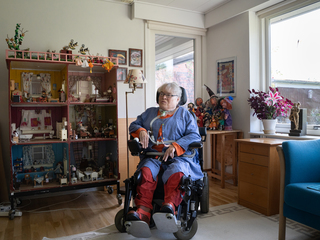
The Fault In Our Stars 2023
First initiated by the Ministry of Social Affairs of Denmark in 2020, an investigation by an independent research group, lead by Denmark's Welfare Museum, proved that people placed under Sær- og Åndssvageforsorgen (term used for the governmental care for people with disabilities from 1933-1980 in Denmark) have been subjected to severe maltreatment and abuse.
Thousands of children and adults were exposed to governmental failure, including violence, psychological and sexual abuse, forced sterilizations as well as grave mistakes in medical treatments.
In 1980, the parliament decentralized the special care sector and handed over the responsibility to local authorities.
After the investigation was finished and the report was published in 2022, the Minister of Social Affairs, Pernille Rosenkrantz-Theil, finally gave an official apology in the name of the state to those who had previously been placed in state-run facilities at an event held in Horsens on 11th September 2023.
Hanne Klitgaard Larsen spoke at the official apology event in Horsens on behalf of all affected people.
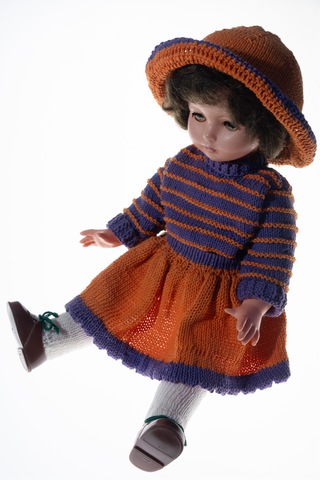
A the age of 10 Hanne performed surgery on her doll Lene and cut her head open. Her outfit is made by Hanne herself. She decided to make a hat for her to cover the wound.
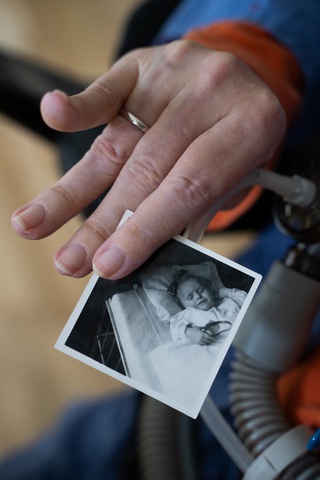
Hanne's parents were only allowed to visit once a week. When the children cried after their parents had left, they weren’t allowed to visit the following week.
Hanne
During the violent epidemic that hit Denmark in 1952-53, Hanne Klitgaard Larsen got infected with polio when she was only three and a half months old. After her first months in hospital, the doctors recommended to put her into a rehabilitation clinic. They told Hanne’s parents to not expect her to get older than the age of four. “And now I’m 71, and the doctor is dead”, Hanne says.
Hanne was put into Samfundet og Hjemmet for Vanføre (society and home for disabled people), a subdivision of Sær- and Åndssvageforsorgen. She spent the following years in several governmental care institutions, with only short visits back home. The consequences of the infection resulted in Hanne’s body being paralyzed. A strict schedule of physical exercises was set in place, including violent experimental treatments and surgeries.
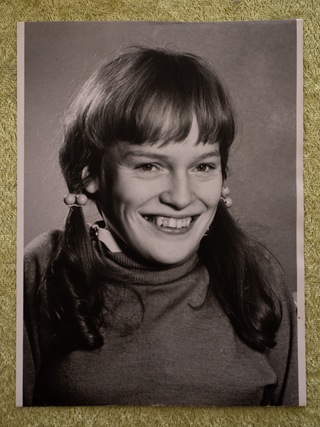
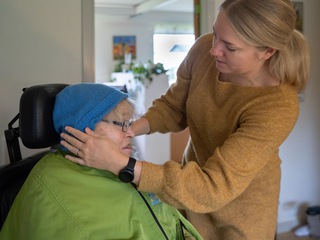
Hanne’s family was asked for consent on surgeries being performed on her, but there was a general lack of information in terms of medical treatment. Her parents were hoping for an improved quality of life for Hanne. They trusted the doctors. But Hanne, like all the children in the institutions, did not know what was happening to her.
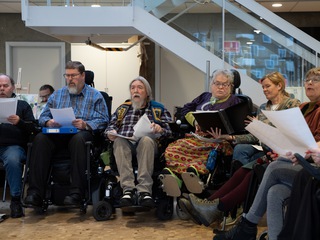
Hanne was part of the theatre group Aarhus Krykensemble (the crutch cast). In their experimental plays they talked very explicitly about disabilities, being on the thin line between very humorous and pushing boundaries, exposing their disabled bodies and asking people to have a closer look, to not look away. ‘Make love to a disabled person, and you can reduce it on your tax report’ was one of their titles.
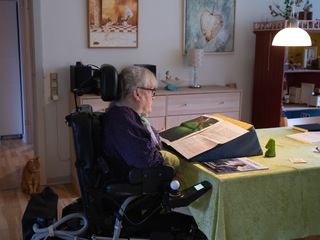
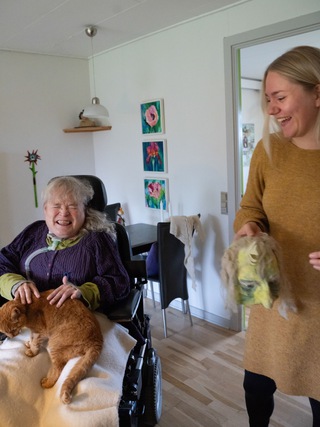
She realized she wanted to focus on educating people through public speaking and writing books and became engaged in politics and activism for the disabled.
Different philosophers, psychologists and mystics as well as a therapy taught Hanne the perspective of suffering being a great opportunity. It allowed her to find meaning in her disability and supported her in moving on from the past.
“If you think there’s only to life what you can see, that’s a straight way to loneliness”, she says with a meaningful smile.
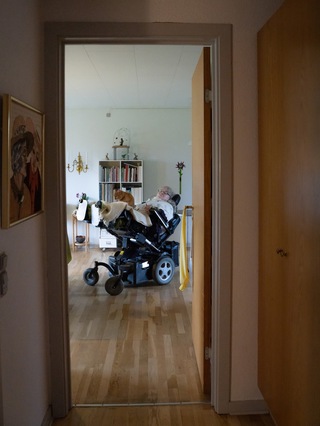
Hanne has written four books, her most recent one being her autobiography Kick the Door open and draw Life in. She wants to emphasize to not only see the sad part of the story, but to be able to grow from it. And that sometimes imagination, spirituality, creativity and a cheerful mind can help you overcome the most difficult circumstances. And lead to a good life.
Read Hanne's full story in the magazine otherness
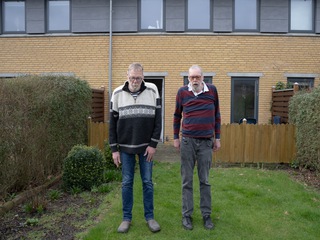
Alex & Børge
The twin brothers Alex and Børge Hansen were three years old when they were sent to an institution in Slagelse. Alex doesn't mind the use of the word 'retarded', but Børge does. Because it's a slur. They've both been bullied at school, have been called bad names. In Slagelse they were checked to see if their brains were working properly, but actually it was to see if they were the 'r-word'.
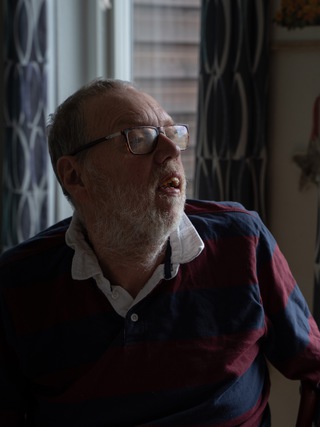
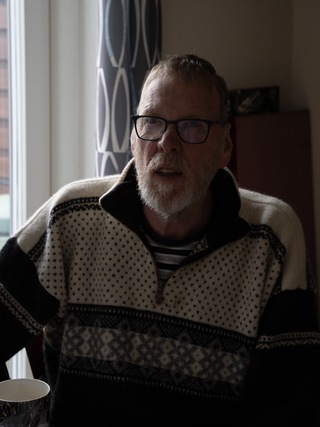
Alex and Børge have spent both their lives in different institutions until they were 18 years old. Life was better after having been released, because they could make their own decisions. When they were in Slagelse, they had to wear these white and blue robes, and they had to walk in a line with a string, so everyone knew where they were coming from when they went to the city.
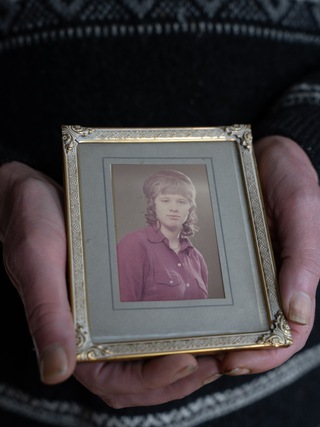
They only went home to see their family over the summer holiday. There was one summe when their mother had sold their sister to a man, her body, temporarily, and both of them witnessed the event. Later she had to see a doctor to get an abortion. It was terrible. Their parents had economical problems. Their dad made all of the decisions. The twins are glad to have not been present when their parents got divorced.
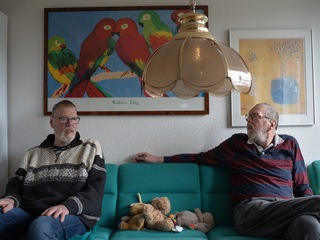
They say it’s important to remember that it was different times, and they don’t really think about it anymore. Then suddenly, Børge remembers that one of their friends named Allan was force-fed when he didn’t want to eat his food. They also tell about the island Sprogø, where approximately 500 young women were sent to, an island institution for mentally retarded and sexually deviant women. Here they had to be re-educated and learn to curb their desires. They were forcefully sterilized. The same thing happened to men,they were sent to another island. Børge and his brother have forgotten the name of this island. But they know it happened.
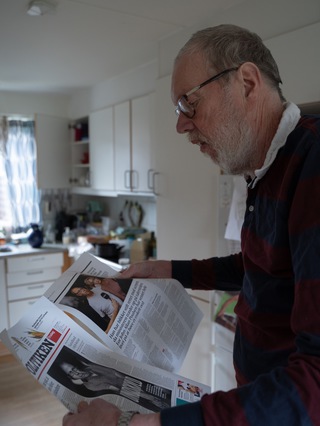
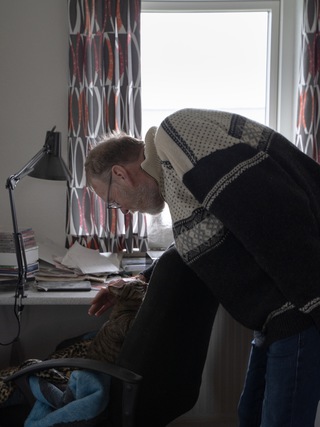
When asked when in their lives they felt most free, Børge says that was when he was working at a cafe, because they knew him there and his abilities, and it was very much him coordinating with everyone else at work, so he felt like everyone else. Alex says, that he used to work in a kitchen and he really liked that, that was when he felt free.
Both of the twins have attended the apology event in September 2023.
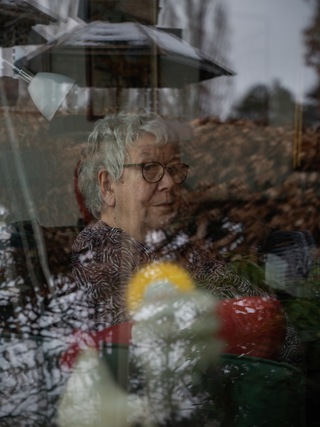
Lone
Because of hearing problems and being cross-eyed Lone Christensen got institutionalized into Hammer Bakker in Vodskov when she was six years old. From 1954 until 1977, when Lone lived there, she has never been in touch with her parents. Lone also took part in the apology event.
Lone has six siblings, all of which are still alive. She also has a lot of nephews and nieces, who visit her sometimes and can help her fix her computer. Lone used to have two birds, who sadly passed away shortly before my visit. She doesn't think she can take care of another bird in the future.
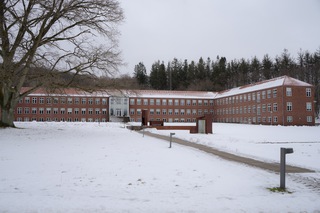
The house of the institution Hammer Bakker in Vodskov where Lone lived for 23 years of her life.
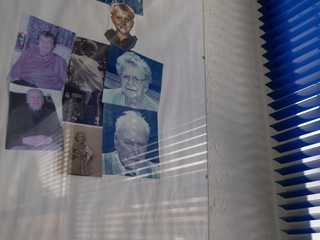
Lone's parents to the right, her godparents to the left. Herself as a child in the middle.
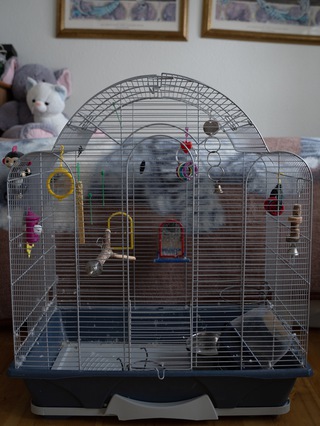
For being considered violent, Lone was sent to the closed section in Hammer Bakker. She wasn't allowed to go outside. She was regularly tied to the bed. She spent seven years there before she was released. That was hard.
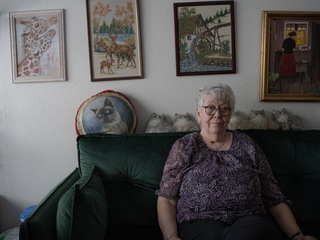
The institution was about to close when Lone left. After having left Hammer Bakker, Lone got support for three years. Suddenly she had to get up on her own in the mornings, do the cleaning, make her own food, even wash her own clothes. Afterwards, she could decide for herself and start living more independently. Lone was used to eating with a spoon. When she got out of Hammer Bakker and would eat the potatoes with a spoon, others were wondering why she was doing that.
It was difficult to adjust to normal life after the experience of Hammer Bakker, mostly during the nights. She was used to always having people around her. She was afraid of going to sleep. In Hammer Bakker, usually there would be eight to nine people sleeping together in one room.
"It's the humour. When you try to see the funny side of things." To be positive - it has worked for Lone in moving on. Many people who were in Hammer Bakker started drinking. It's not Lone's way of life. She doesn't like drinking.
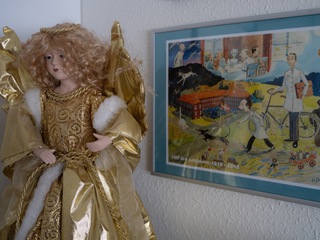
Lone likes to travel. So far, she’s been to Holland, Portugal, Ibiza and Switzerland. She enjoyed Switzerland the most, because of the chocolate.
The apology itself wasn't really important to Lone. She would have preferred to get an apology of the teachers in Hammer Bakker rather than the Minister of Social Affairs.
JavaScript is turned off.
Please enable JavaScript to view this site properly.